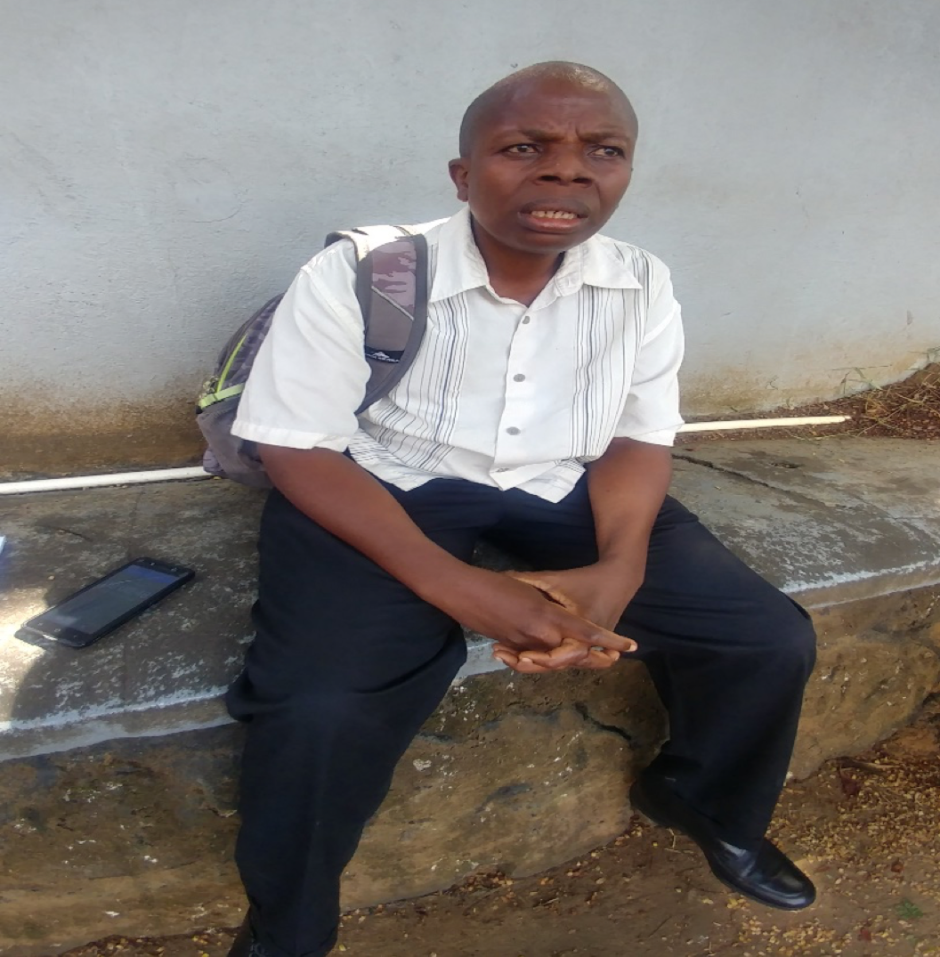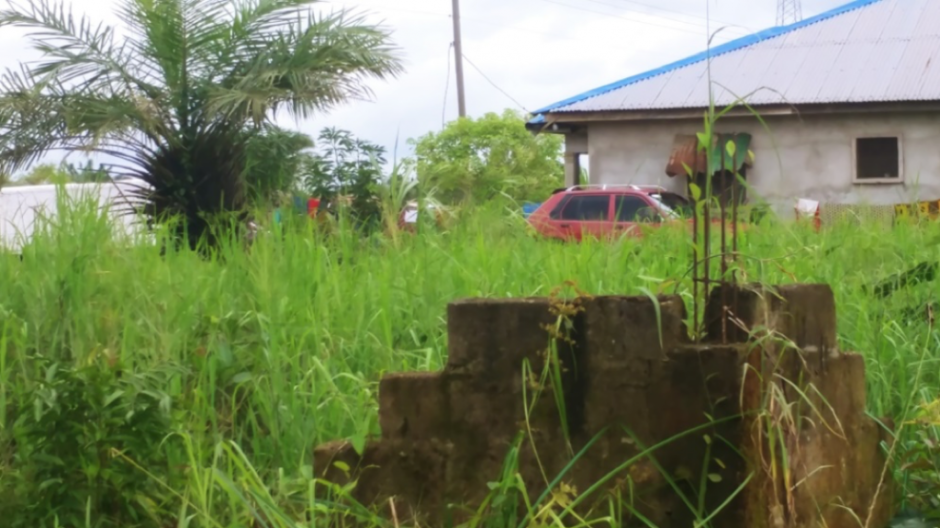
PIPELINE – In 2009,Jimmy Dasaw’s plan to expand Kiddies College was underway when he purchased three acres of land for US$2,600 in Pipeline, Paynesville from Johnny Hill, the administrator of Tarsue Gbazue Estate in Johnsonville. That dream for his elementary school eventually turned into nightmare.
Five years after purchasing the land, in 2014, Dasaw found himself thrusted into a lengthy legal battle. Hill had sold one of the three acres of Dasaw’s land to a man named Varney Kanneh, court documents show. Two years on, Criminal Court “C” found Hill guilty of criminal conveyance of land.
“I have been deeply injured by this double land sale,” Dasaw tells FrontPage Africa in an interview at the Temple of Justice in Monrovia. “This case has affected nearly everything in my life. For the last five years, I have had sleepless days and nights.”
Dasaw is one of thousands of victims of multiple sales of land in Liberia, despite the Act Against Criminal Conveyance of Land. The law was created in 2014 to curb land disputes, which were spiraling out of control across the country at the time and a common reference to the cause of another civil conflict. But six years after, the crime continues to threaten the country’s peace, leaving stakeholders grappling with its solution.
From July 2015 to June 2019, 1,268 cases of multiple sales of land were reported, records of Liberia’s Land Authority (LLA) show. Montserrado County accounts for 35 percent of those cases. Criminal Court “C”—the court that has jurisdiction over criminal conveyance of land cases—has heard 17 cases so far, according to the court’s records.
Chief Justice Francis Korkpor decried the situation when he addressed the opening of the March term of court.
“This act… has resulted into violence and even deaths,” Korkpor said at the time. He called for decisive actions to be taken against perpetrators of the act. “Criminal conveyance undermines and poses threat to Liberia’s peace and national security.”
Cllr. Tiawon Gongloe, the president of the Liberia Bar Association (LiBA), urges special training for the police to handle land-related criminal cases effectively.
“I am suggesting there should be a year-round seminar for the police to be educated on the law to be able to fully understand its interpretations and enforcement,” Gongloe tells FrontPage Africa. If they are more aware of the law, he says, the police will be able to effectively carry out their preliminary investigation and charge suspects accordingly.

Gongloe, however, has an advice for land buyers.
“In the first place, the law states that once an individual sells a land and hands over a title deed to the buyer, it means the person who sold the land no longer holds claims to that property,” Gongloe explains. “I advise that before purchasing a land, party litigants should consult their lawyers to investigate the real owner of that land before it is even surveyed and probated by the court.”
There are legal steps you have to follow to obtain a title deed, according to the Land Rights Act of 2018. You must do a background check on the land dealer. That dealer must publish the sale of the land in a local daily and place notices in the community the land is located. You must request receipt from the dealer upon paying for the land and survey it. After that, you must get a signed deed from the seller, present it to your lawyer for approval, probate the approved deed and then register it at the LLA.
If someone sells you a land they do not own, or you buy a land from someone you know is not the rightful owner, you and that person have committed an offense under the Criminal Conveyance Law. It also applies to surveyors and public officials and ordinary people who facilitate the crime.
Ali Kaba, former head of the community land protection program of the Sustainable Development Institute (SDI) wants a committee comprising the courts, Center for National Documents and Records Agency (CNDRA), LLA, Ministry of Internal Affairs (MIA), and the Ministry of Justice (MOJ), to increase awareness on land-related laws.
“If more people are made aware of the law,” he says, “it will help to reduce tension across communities.”
In the meantime, the LLA is exploring other avenues to reduce criminal land transactions. They are transitioning from a manual deed registry to a digital system. Manual registration makes it difficult to capture the portion of land on a deed that has been sold, according to Paul Tolbert, the director of land dispute department at the entity. A digital registration process will mitigate that problem.
“Perpetrators of criminal conveyance are taking advantage of this major gap in the law,” head of the LLA’s dispute section Paul Tolbert says. He suggests the law should be amended to give a quasi-judicial power to penalize culprits of the crime.
Back in Pipeline, Dasaw might have won the case but his problems are not over yet.
Hill has filed an appeal at the Supreme Court. His lawyers, citing section 20.10 of the Criminal Procedure Law, argue he should be acquitted because he allegedly committed the crime in March 2014, five months before the Criminal Conveyance of Land Law was created. But the court dismissed that argument. “The alleged nonexistence of the Criminal Conveyance Law is not an insufficiency of evidence,” its verdict reads, “and therefore, cannot come under motion for acquittal.”
The court also says in the verdict that it could not acquit Hill because his lawyers should have made the jurisdiction argument before the trial in line with chapter 16, section 16.7 of the Criminal Procedure Law.
The case was scheduled to be heard during the March term of court but was postponed due to the coronavirus pandemic. It is expected to heard this October term of court.
Criminal conveyance of land is a second-degree felony. If the Supreme Court upholds the lower court’s ruling, Hill—who has another lawsuit against him for the same offense—could serve a maximum sentence of five years and will pay two times the money Dasaw paid him, US$5,200.
This story was a collaboration with New Narratives as of our Land Rights and Climate Change Reporting Project. Funding is provided by the American World Jewish Service. The funder had no say in the story’s content.
